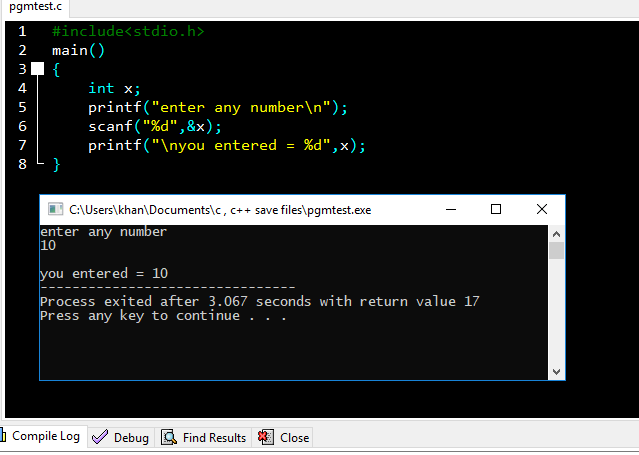2) C Program to take input from user :
Logic:- for taking input scanf() is used, which required header file , stdio.h
How to use:- suppose user enter 10 it is store in int type variable x , so in scanf we provide where 10 is store in memory, such as in program, &x (means in the address of x, where x is a int type variable)
Example:-
Logic:- for taking input scanf() is used, which required header file , stdio.h
How to use:- suppose user enter 10 it is store in int type variable x , so in scanf we provide where 10 is store in memory, such as in program, &x (means in the address of x, where x is a int type variable)
Example:-

Comments
Post a Comment